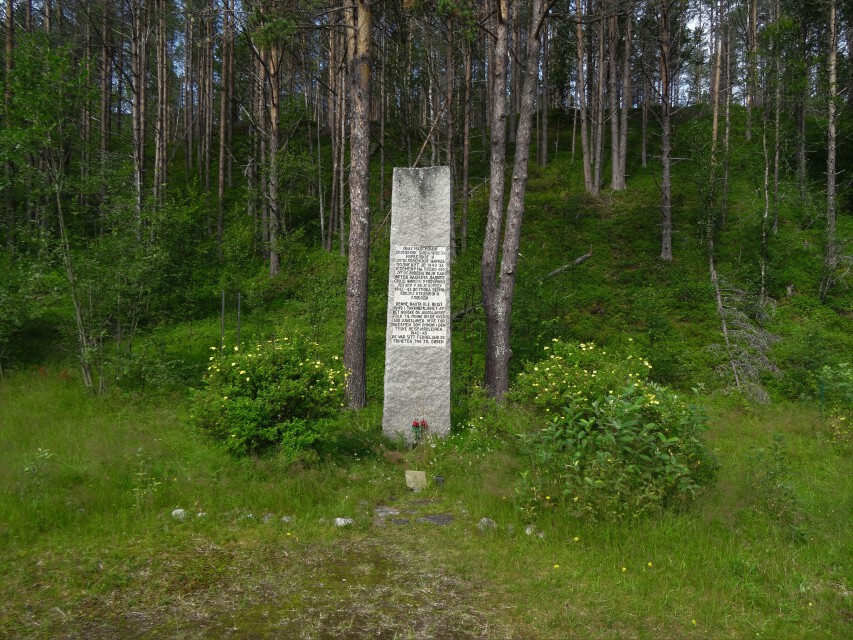There were many reasons that brought Marija Stančić into the “Code Viking” project. A Serbian living in Norway, she always had special interest in World War II and was writing a thesis about film: „I felt the project was basically made for me“.
Her footages were made in Norway – we see the remains of former camps, a Soviet monument in Beisfjord, a monument to the Yugoslavian prisoners in Bjørnfjell, a tombstone dedicated to the German soldiers at the Narvik cemetery. At the end of the film there are also memory books near monuments in Beisfjord, where people can leave their messages and thoughts about the past and history of these places.
All this is used to illustrate a story, which can be called quite remarkable, although tragic. This is a story of Johnny Larsen. When the war came to Norway and the German occupation began in 1940, Johnny Larsen was only 17 years old. Already in his teenage years he joined the Nazi-supporting Norwegian fascist party, Nasjonal Samling. With the beginning of the occupation he started as an interpreter for the Gestapo and his skills were used for questionings and interrogations. Apparently he discovered that he was good at questioning himself and that’s how he became a torturer to get information from people. After the war he was sentenced to death for his crimes and shot at the age of 24.
Unfortunately the sound of Marija’s movie had to be muted for copyright reasons. Please turn on subtitles to follow the movie’s narration.
The key question of that story is the one about the combination of personal responsibility and the influence of external factors. Even tiny decisions matter. Johnny Larsen made a choice to work with the Gestapo. There were people his age, who chose to work, for instance, on a railway. Maybe they didn’t get as much money, but at least they didn’t torture anybody. Johnny Larsen made another choice, but how much of that choice was really an informed one? How much did you know, when you were 17?
One should take into account all the factors that influenced him and created the whole situation.
„Would he have lived a normal life if it wasn’t for the war? Would he have repented afterwards, if he hasn’t been put to death? – I don’t know“.
These questions don’t have answers. But there are millions of nuances that we should be aware of, when we examine cases like this. We should think about the factors that went into such choices, so we could fix the societal situation and trying to work on the society where these particular circumstances never happen again.
„You always make a choice under the influence of your own upbringing, your personality, your history, the situation you are in currently. There are a lot of factors. But it’s still you who makes a choice.”
